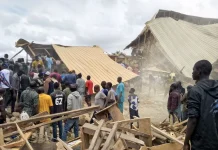The Port Harcourt Zonal Office, Department of Petroleum Resource (DPR), has warned that it will not renew the licence for operators, who failed to adhere strictly to safety requirements. The Zonal Operations Controller of the agency, Mr Bassey Nkanga, issued the warning in an interview with newsmen in Port Harcourt on Thursday.
Nkanga said, “Any operator in the downstream sector, who failed to obtain these minimum safety requirements risks licence renewal in 2021.’’
He further said that the agency would not tolerate indiscriminate fires in petrol stations and depots during the dry season.
According to him, DPR has commenced compulsory training for operators in the downstream through its various recommended safety training providers.
He, therefore, advised all the operators in the sector to take advantage of the exercise. He said: “We have commenced safety training for operators, tagged ‘minimum safety requirements for downstream operators’ in Nigeria. “The exercise started in the first week of September but prior to its commencement, we have had several engagements on safety education with the downstream operators.
“It’s now very mandatory for every petrol station worker, from the pump attendants to the Managing Director, to obtain this basic minimum safety training,’’ he said. Nkanga also said that DPR was continuously accrediting safety training providers to ensure that the contents they were offering met global best practice.
He said that operators in the downstream were free to choose from amongst the accredited training providers for the necessary training.
He narrated a fire that occurred at a petrol station in Port Harcourt in October and attributed the incident to avoidable mistake and warned against it.
“In October, we had a fire at a petrol station here in Port Harcourt, we did our investigation and by our findings, the incident occurred when a truck conveying petrol was trying to discharge product into the underground tank of the station.
“The fire, which occurred about 6.40 am, happened because these coordinators failed to properly couple the discharge host before commencement of discharge. “On opening, the discharge valve forced the coupling host down and its head, which was constructed with metal material instead of the recommended brass, hit against a hard surface and sparks were generated in the process.
“It was the sparks that ignited the already charged hydrocarbon vapours that was actually the source of ignition, which eventually led to the fire outbreak. “The petrol station was one of the stations earlier allowed to install and add Liquefied Petroleum Gas (LPG) facility in its station.
“Luckily, the LPG facility was not affected by the fire,’’ he said.
Nkanga, therefore, warned operators against cutting corners, adding that DPR would not tolerate avoidable mistakes, resulting in harm to lives, property and the environment.


























